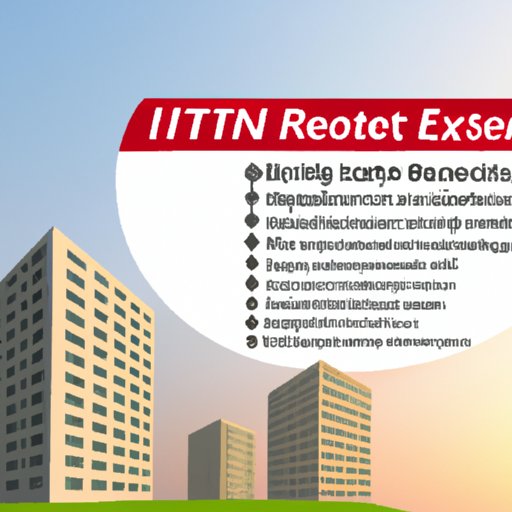Introduction: What are Real Estate Investment Trusts (REITs)?
Real Estate Investment Trusts (REITs) are a type of security that allows investors to invest in real estate without owning the property directly. REITs pool money from many investors and purchase properties such as office buildings, hotels, apartments, and shopping malls. The income generated by these properties is then distributed back to investors in the form of dividends.
REITs offer several advantages for investors, including diversification, high liquidity, and professional management. Additionally, REITs can provide a steady stream of income and potential appreciation over time. For these reasons, REITs have become increasingly popular with investors looking to add real estate investments to their portfolios.
Research the Different Types of REITs
When it comes to investing in REITs, there are several different types to choose from. It’s important to understand the differences between them so you can choose the best one to meet your investment goals.
Equity REITs
Equity REITs own and manage real estate properties and collect rental income from them. They generate most of their revenue from rental payments, and they may also receive income from the sale of properties. Equity REITs are often the most common type of REIT, and they tend to be more volatile than other types of REITs.
Mortgage REITs
Mortgage REITs invest in mortgages, rather than physical properties. They may purchase mortgages directly from banks or other lenders, or they may buy mortgage-backed securities (MBS). Mortgage REITs generate income from interest payments on mortgages, and they tend to be less volatile than equity REITs.
Hybrid REITs
Hybrid REITs combine elements of both equity and mortgage REITs. They typically own some physical properties and invest in mortgages, allowing them to benefit from both types of investments. Hybrid REITs tend to be more diversified than either equity or mortgage REITs, but they also tend to be more complex and riskier.
Other Types of REITs
There are other types of REITs, such as international REITs, infrastructure REITs, and healthcare REITs. Each type of REIT has its own unique set of risks and rewards, so it’s important to do your research and understand the differences before investing.
Choose a Niche or Sector to Invest in
Once you’ve decided which type of REIT you’d like to invest in, the next step is to choose a niche or sector to focus on. You’ll want to consider your investment goals and evaluate current market trends and opportunities to determine which area of real estate would be the best fit for your portfolio.
For example, if you’re looking for long-term growth, you might want to focus on commercial real estate such as office buildings, retail centers, and industrial parks. If you’re looking for more short-term gains, you could focus on residential real estate such as single-family homes, condominiums, and townhomes.

Understand Tax Implications of REIT Investment
It’s important to understand the potential tax implications of investing in REITs. Dividends from REITs are generally taxed as ordinary income, while capital gains from REITs are generally taxed at a lower rate. Additionally, some REITs may qualify for special tax treatment, such as the Qualified Business Income Deduction.
You’ll also want to factor in any state or local taxes that may apply to REIT investments. Depending on where you live, you may be subject to additional taxes on REIT dividends or capital gains.

Consider the Fees and Expenses Associated with Investing in REITs
Before investing in REITs, you’ll want to consider the fees and expenses associated with them. Most REITs charge management fees to cover the costs associated with managing and operating the properties. Additionally, some REITs may charge acquisition costs when they purchase new properties.
You should also factor in transaction fees when buying and selling REIT shares. These fees can vary depending on the broker or platform you use, so it’s important to compare fees before making any investments.

Decide How Much Capital to Allocate to REITs
Once you’ve done your research and chosen a REIT to invest in, you’ll need to decide how much capital to allocate to it. This will depend on your risk tolerance and time horizon. Generally speaking, the longer your time horizon, the more capital you’ll want to allocate to REITs.
It’s also important to remember that REITs can be volatile, so you should never invest more than you’re willing to lose. As with any investment, you should only invest what you can afford to lose.
Explore REITs on the Market and Make an Informed Decision
The final step in getting started with REITs is to explore the REITs on the market and make an informed decision. You’ll want to research companies, analyze their financial statements, and consider ratings from independent sources before making any investments.
You should also pay attention to market trends and news related to the real estate industry. This will help you stay up to date on developments that may affect the performance of your investments.
Conclusion
Investing in REITs can be a great way to diversify your portfolio and generate a steady stream of income. Before you get started, however, it’s important to understand the different types of REITs, evaluate market trends, understand tax implications, and consider fees and expenses. Additionally, you’ll want to decide how much capital to allocate to REITs based on your risk tolerance and time horizon.
Finally, you’ll need to research companies and analyze financial statements before making any investments. By taking the time to do your research, you’ll be better prepared to make an informed decision and maximize your chances of success with REITs.
(Note: Is this article not meeting your expectations? Do you have knowledge or insights to share? Unlock new opportunities and expand your reach by joining our authors team. Click Registration to join us and share your expertise with our readers.)
